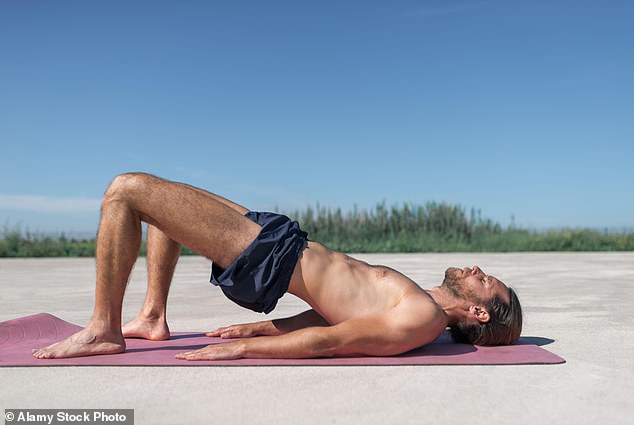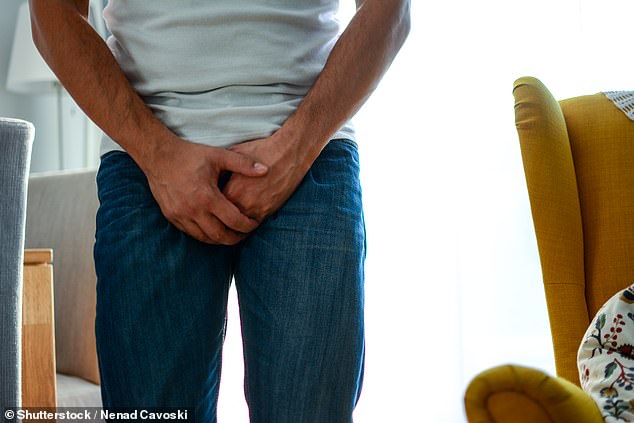<!–
<!–
<!– <!–
<!–
<!–
<!–
They are typically more associated with women who are about to give birth, but men who need to urinate frequently could benefit from pelvic floor exercises, according to one study.
Hundreds of thousands of men in the UK currently suffer debilitating symptoms when going to the toilet, including hesitancy, straining, frequent urination and problems emptying the bladder effectively.
Surgery is usually only recommended for those with severe symptoms, while unpleasant side effects have been linked to the few medications available.
Now, experts have found that exercises, combined with behavioral therapy administered via a phone app, can lead to significant improvement in symptoms and could even be more effective than current medical treatments.

Hundreds of thousands of men in the UK suffer debilitating symptoms when going to the toilet, including hesitancy, straining, frequent needing to urinate and problems emptying the bladder effectively (file image)
A team from Freiburg University Hospital in Germany recruited 237 men over the age of 18 who suffered from varying degrees of bladder emptying disorder.
However, only half had access to app-based therapy.
Participants were asked to record a voiding diary and complete questionnaires about the severity of their symptoms and their overall quality of life.
After 12 weeks, the trial found a significant improvement in symptoms and quality of life measures in participants who received the app-based therapy, compared to those in the control group.
The study found that, fundamentally, app-based therapy was more effective than medical therapy.
Professor Christian Gratzke, who co-led the trial, said: “Frequent urination and problems emptying the bladder are the most common urinary conditions we see in men after urinary tract infections.
‘Although there are some drugs available, they are not usually effective and until now there has been little data available to support physiotherapy.


Experts have found that pelvic floor exercises, combined with behavioral therapy delivered via a phone app, can lead to significant improvement in symptoms (file image)
“We are confident that we now have that data, and making this form of therapy available digitally could be a game-changer for the millions of men who struggle every day with bladder emptying problems.”
Bladder emptying disorders can begin to appear from the age of 30 and usually affect a large proportion of men over 50 years of age.
Jean-Nicolas Cornu, Professor of Urology at Charles Nicolle Hospital in France, said: “There has been little or no evidence to support training men to better control their bladder, despite this being recommended in clinical guidelines.
‘This is the first randomized controlled trial looking at physiotherapy and behavioral therapy for bladder emptying disorders and shows a very positive effect over conventional drug treatment.
‘We now need a larger trial looking at the long-term effect of this app-based therapy after 12 weeks for different forms of bladder emptying disorders. If widely offered, this treatment could dramatically change clinical practice and alleviate symptoms without exposing patients to medications.
“We could save a lot of unnecessary prescriptions for medications that tend to be of little benefit.”
Results from the Bladder Emptying Disorder Therapy (BEST) trial were presented at the European Association of Urology Congress in Paris.
